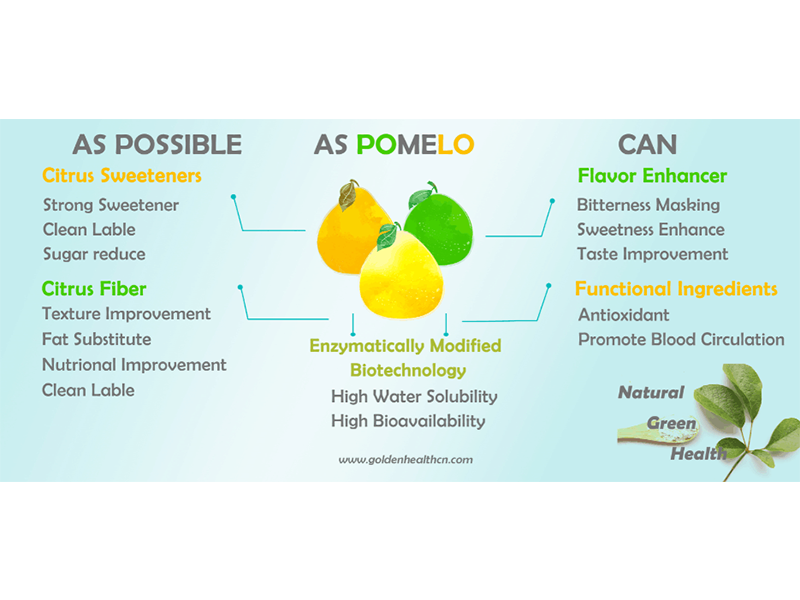Which one is healthier between sugar and sweetener
Sugars are carbohydrates naturally present in foods, of course they can also be added as ingredients. Just like other carbohydrates, they are used as energy in the body. Adding a lot of sugar to your diet may lead to insulin resistance, which means it is difficult for your body to convert sugar into energy. This can cause a variety of health problems, such as type 2 diabetes, obesity, high blood pressure and heart disease.
Due to the increasing health problems, manufacturers have proposed sweetener as a sugar substitute. They provide sweetness while containing significantly less energy, making them "zero-calorie" or "low-calorie". Sweetener can generally be divided into two groups, namely artificial sweetener and nutritional sweetener.
Most artificial sweeteners refer to alternative sugars that can be used for tea or coffee. They exist in all kinds of manufactured food and beverage products in supermarkets, and now you can see the diet on the label, low-calorie or no sugar in supermarkets. They are likely to substitute artificial sweeteners for sugar ingredients, such as many'diet' or'zero sugar' soft drinks with aspartame
What is the difference between artificial nutrition sweetener and nutritional sweetener?
Artificial sweetener comes from plants or herbs, or even sugar itself. For example, sucralose is made from sucrose. Sucrose is a common edible sugar, but compared to sugar, it has a higher sweetness and therefore requires a smaller amount. The nutritional sweetener is based on different types of carbohydrates. They are called nutrients because they provide calories and nutrients.
Sweeteners are usually safe, but like most situations, it is important to remember everything in moderation. Sweeteners are completely synthetic and they have no health advantage.
Some evidence suggests that artificial sweetener may change the gut microbiota, which means that our digestion, immune system and mood will all be affected. Sweetener is also proven to work when our body craves food, because your body consumes calories when consuming sweets, and when they don’t eat, we continue to look for them. Therefore, cravings and snacking are likely to occur.
Natural sweetener has many uses in household and processed foods. When used in moderation, they can be used as a substitute for sugar and artificial sweetener. This is a healthier choice because they contain vitamins and minerals that do not contain sugar or sweetener. For persistence, molasses is a by-product of refined sucrose, but unlike processed sugar and sweetener, it is rich in nutrients such as iron, magnesium and calcium.
In general, sweetener and sugar have advantages and disadvantages. Remember, manufacturers are adding sweetener to processed foods instead of whole foods. It is important to remember that moderation is the key to maintaining a healthy lifestyle, and it will always take some time to read your food labels.
Due to the increasing health problems, manufacturers have proposed sweetener as a sugar substitute. They provide sweetness while containing significantly less energy, making them "zero-calorie" or "low-calorie". Sweetener can generally be divided into two groups, namely artificial sweetener and nutritional sweetener.
Most artificial sweeteners refer to alternative sugars that can be used for tea or coffee. They exist in all kinds of manufactured food and beverage products in supermarkets, and now you can see the diet on the label, low-calorie or no sugar in supermarkets. They are likely to substitute artificial sweeteners for sugar ingredients, such as many'diet' or'zero sugar' soft drinks with aspartame
What is the difference between artificial nutrition sweetener and nutritional sweetener?
Artificial sweetener comes from plants or herbs, or even sugar itself. For example, sucralose is made from sucrose. Sucrose is a common edible sugar, but compared to sugar, it has a higher sweetness and therefore requires a smaller amount. The nutritional sweetener is based on different types of carbohydrates. They are called nutrients because they provide calories and nutrients.
Sweeteners are usually safe, but like most situations, it is important to remember everything in moderation. Sweeteners are completely synthetic and they have no health advantage.
Some evidence suggests that artificial sweetener may change the gut microbiota, which means that our digestion, immune system and mood will all be affected. Sweetener is also proven to work when our body craves food, because your body consumes calories when consuming sweets, and when they don’t eat, we continue to look for them. Therefore, cravings and snacking are likely to occur.
Natural sweetener has many uses in household and processed foods. When used in moderation, they can be used as a substitute for sugar and artificial sweetener. This is a healthier choice because they contain vitamins and minerals that do not contain sugar or sweetener. For persistence, molasses is a by-product of refined sucrose, but unlike processed sugar and sweetener, it is rich in nutrients such as iron, magnesium and calcium.
In general, sweetener and sugar have advantages and disadvantages. Remember, manufacturers are adding sweetener to processed foods instead of whole foods. It is important to remember that moderation is the key to maintaining a healthy lifestyle, and it will always take some time to read your food labels.

